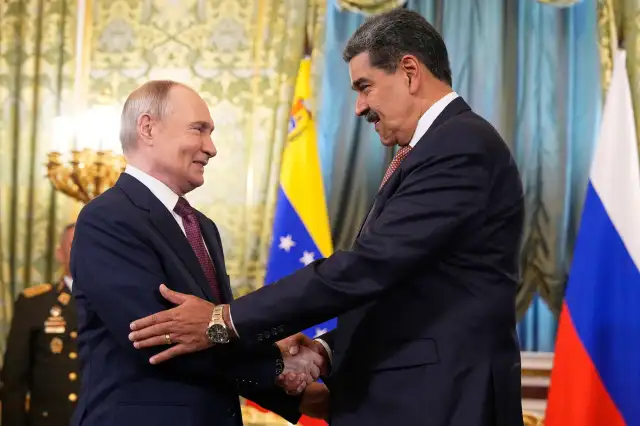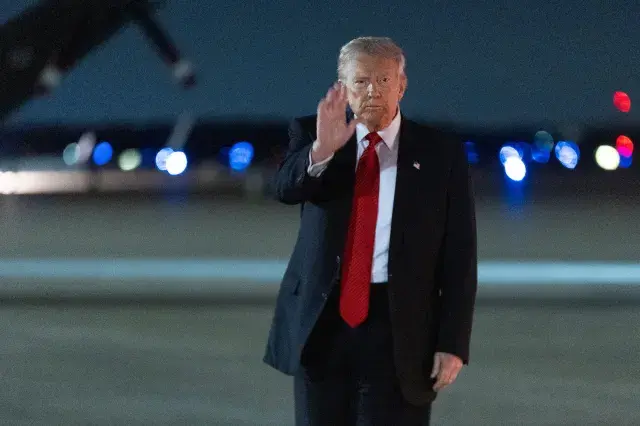
Russia has condemned the United States for what it described as the use of “excessive military force” in the Caribbean under the pretext of combating drug trafficking, while also expressing support for Venezuelan President Nicolás Maduro.
On Sunday, the Kremlin confirmed it is monitoring developments closely as tensions between Washington and Caracas intensify over U.S. strikes and Venezuela’s reported outreach to Moscow for military assistance.
Newsweek has reached out to the State Department, the Kremlin and Venezuela’s Foreign Ministry for comment.

Why It Matters
The escalating rhetoric between Moscow and Washington underscores growing geopolitical friction in Latin America, where Venezuela’s ties with Russia and China have deepened as the U.S. ramps up military operations in the region. Washington’s actions, framed as anti-narcotics missions, have drawn condemnation from Russia and concerns about a potential new flash point reminiscent of Cold War-era alignments.
The recent U.S. naval deployment and a series of air and sea strikes on vessels in Caribbean waters have raised alarms among regional governments and international observers, who fear that expanded American military activity could destabilize the area and draw external powers further into confrontation.
What To Know
Russian Foreign Ministry spokeswoman Maria Zakharova said Moscow “resolutely condemns the use of excessive military force” by the U.S. in the Caribbean. She emphasized that Russia fully supports the Venezuelan government in its efforts to safeguard national sovereignty and maintain the region as a “zone of peace.”
Zakharova called for de-escalation and adherence to international law, citing violations of both U.S. constitutional provisions and global legal frameworks, including the U.N. Charter and the Charter of the Organization of American States.
Moscow Watches Closely
The Kremlin confirmed it is following the situation in Venezuela “very closely.” According to spokesman Dmitry Peskov, Moscow remains in contact with Caracas “as the countries are bound by various treaty obligations.” Peskov stressed that Russia wants “everything to remain peaceful and for no new conflicts to arise in the region.”
Venezuelan Military Requests
The Washington Post reported on Friday that Maduro had written to Russian President Vladimir Putin requesting “defensive radars, aircraft repairs, and potentially missiles.” The report, citing U.S. government documents, said a senior Venezuelan aide had delivered the request during a visit to Moscow. It also mentioned a similar letter to Chinese President Xi Jinping seeking expanded military cooperation to counter what Maduro described as “escalation between the U.S. and Venezuela.”

Trump Doubts War
President Donald Trump has downplayed the likelihood of the U.S. going to war with Venezuela but suggested that Maduro’s time as the country’s leader may soon be coming to an end. When asked during an interview with CBS’s 60 Minutes whether Washington was preparing for military action against Venezuela, Trump said: “I doubt it. I don’t think so. But they’ve been treating us very badly.”
Since September, Washington has carried out more than a dozen strikes on vessels it alleges were involved in drug trafficking operations originating from Venezuelan waters. At least 61 people have been killed in these strikes. The U.S. has not publicly released evidence to substantiate its claims, and Maduro has rejected the accusations as politically motivated.
What People Are Saying
Russian Foreign Ministry spokeswoman Maria Zakharova: “We resolutely condemn the use of excessive military force in carrying out anti-drug tasks.”
Kremlin spokesman Dmitry Peskov: “We are watching very closely what is happening in Venezuela. Of course, we want everything to remain peaceful and for no new conflicts to arise in the region.”
What Happens Next
With the U.S. continuing its operations and Venezuela seeking closer defense ties with Russia and China, diplomatic tensions are likely to intensify. Moscow’s insistence on respecting international law and Washington’s ongoing military actions suggest the standoff could deepen, testing the fragile balance of power in the region.







